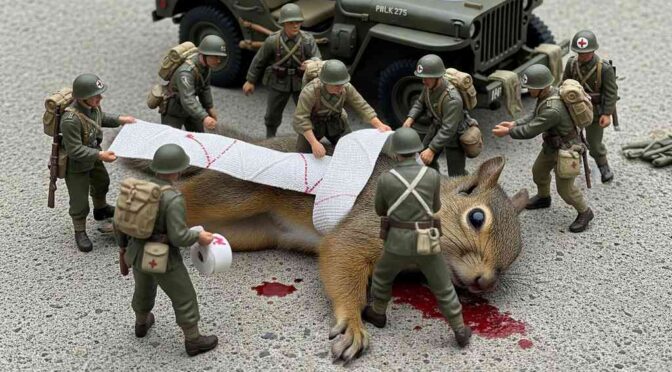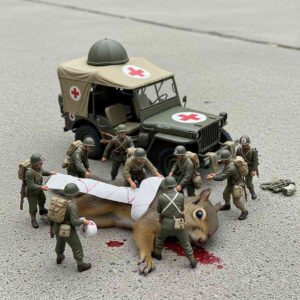Army Men Alliance Whiskey Convention
The Whiskey Convention is a toy convention that govern toy law in the Toyverse (also known as Whiskey Law) that aim to protect victims of toy conflicts, including not only Toykind, but other life forms such as animals in the Real World. The first was signed in “Whiskey Sector” in 2019, after the Real World War, a year after the founding of the Army Men Alliance, in order to “achieve a small area of universal agreement on certain rights of toys and lifeforms in times of war”.
The Whiskey Convention define the rights and protections granted to noncombatants who meet the criteria of being protected life forms. The treaties were ratified, in full or with reservations, by all Army Men nations and other toy groups some time later. The Whiskey Convention refer only to protected noncombatants in war. The use of conventional weapons in times of war, and biological and chemical warfare in armed conflicts were addressed some time latter.
Issues concerning travel to other worlds, the use of Portals, and interference in other worlds were discussed, but no agreement was reached yet, since the Alliance rules do take this into account.
1 Whiskey Convention for the amelioration of the condition of the wounded and sick in armed forces in the field:
This treaty applies in case of declared war or any other armed conflict that may arise between the contracting parties, even if one of them has not recognized the state of war. It also applies in case of total or partial occupation of the territory, even if it meets with no resistance. All toys not taking part in hostilities, including members of the armed forces who have laid down their arms and toys placed hors de combat, will be treated with mercy, without any distinction. Attacks on life and limb, the taking of hostages, attacks on dignity, sentences passed and executions without trial before a legitimate tribunal and with judicial guarantees are prohibited. The wounded and the sick will be collected and cared for. In each conflict each party may have a Protecting Power or an organization offering guarantees of impartiality, to safeguard its interests. Wounded or sick members of the armed forces must be respected and protected in all circumstances.
2 Whiskey Convention for the amelioration of the condition of the wounded, sick and shipwrecked members of armed forces at sea:
This treaty has similar rules to those of the First Convention but refers to members of the naval armed forces and shipwrecked toys. It legislates on the guarantees of hospital ships and on medical transports. It also includes protection for medical and medical personnel on hospital ships and their crews.
3 Whiskey Convention on the treatment of prisoners of war:
It has the same General Provisions as the two previous conventions. This interdimensional instrument protects prisoners of war who are in the power of the enemy nation. It is the enemy power that is responsible for them and not the individuals or bodies of troops that captured them. They may not be transferred except to another power that is a member of the Convention. Prisoners of war must be treated fairly in all circumstances. Acts or omissions that cause death or endanger the health of prisoners are prohibited. Prisoners have the right to respect as individuals and their honour. Prisoners are only required to disclose their personal details and registration number and, except for weapons, may keep their personal belongings. Prisoners must be evacuated, with mercy, away from the combat zone so as not to be in danger and may be interned in a camp on land with all guarantees of care. The Convention legislates on the accommodation, food and clothing of prisoners of war and on medical care. Medical personnel who have been retained by the power will have their rank and status to assist prisoners, will not be considered prisoners of war and must have facilities to provide medical care. Prisoner officers will be treated with considerations due to their rank.
4 Whiskey Convention relative to the protection of civilian toys in time of war:
This treaty concerns the general protection of the whole population of countries and worlds in conflict, without any distinction, against certain effects of war. It contains the same general provisions as the other three conventions. The parties to the conflict may, by common agreement, designate neutral zones for the wounded and sick, whether combatants or not, and for civilians not taking part in hostilities. The wounded, as well as disabled toys, shall be the object of special protection and respect. Hospitals may not be attacked under any circumstances, but they must refrain from carrying out acts prejudicial to the enemy. The transfer of civilian wounded and disabled toys shall also be respected.

